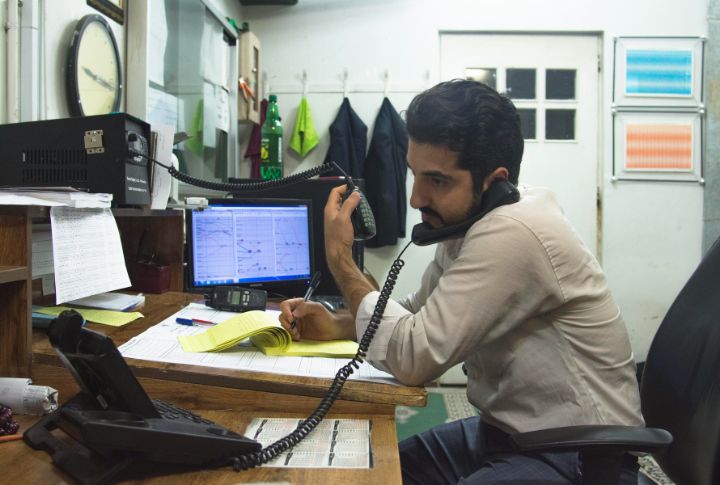
Most candidates dread the question, “What’s your biggest weakness?” But the smartest ones know it’s a golden opportunity to stand out. The right answer shows the traits hiring managers love. Before you panic about what to say, check out these examples of weaknesses bosses actually appreciate. You might just discover how to turn your flaws into your biggest selling point.
Overcommitting To Tasks

There’s always someone ready to volunteer before the question’s even asked, and that energy rarely goes unnoticed. Dedication like this makes any team stronger, even if it means the to-do list becomes a small novel. Leaders quietly admire that kind of ambition, caffeine habit included.
Being Too Detail-Oriented

Tiny flaws never escape notice, and the rest of the team secretly depends on that sharp eye. While others call it nitpicking, decision-makers call it free quality assurance. Precision might slow the pace, but it keeps the wheels from falling off later.
Public Speaking Anxiety

Few things strike fear like an audience armed with coffee and expectations. Strangely, that nervous honesty earns respect. Admitting to stage fright shows humility and a commitment to performance. Those are qualities managers prefer over the bold confidence of someone who thinks PowerPoint slides speak for themselves.
Being Too Self-Critical

The inner critic works overtime, second-guessing drafts that are already spotless. This self-imposed pressure can be maddening, yet it reveals a hunger to improve. Managers see the upside: a worker who strives for better, even when “good enough” was never in question.
Struggling With Delegation

Handing over control doesn’t come easy for people who take pride in their work. The reluctance shows a deep sense of accountability (hardly a bad trait). It’s much simpler to teach delegation than to manufacture genuine responsibility, so leaders tend to keep that kind close.
Impatience With Slow Processes

When progress drags, patience often packs up and leaves. Behind that restlessness lies ambition: the drive to make things work better, faster, cleaner. Colleagues might roll their eyes at the tapping pen, but secretly, they rely on that push to keep momentum alive.
Overthinking Decisions

The gears turn a little longer before action happens, yet that patience speaks volumes. A careful mind earns trust in fast-paced settings, grounding teams that prefer direction over drama. Steady judgment, even with occasional hesitation, becomes the quiet advantage others depend on.
Difficulty Asking For Help

A strong sense of independence can make asking for help feel like surrender. In reality, it signals integrity and awareness of one’s limits. Teams value professionals who know when to invite collaboration. After all, shared effort usually achieves more than solitary determination.
Tendency To Multitask

Several projects going on at once? Classic ambition disguised as chaos. The instinct to juggle many things reflects curiosity and drive, even if focus occasionally takes a hit. Workplaces still prize that kind of energy, since it’s far easier to redirect than to ignite.
Limited Experience With Certain Tools

Admitting you’re still learning certain tools shows more strength than weakness. The honesty reveals curiosity and adaptability. In fact, most hiring teams prefer candidates who acknowledge gaps because those individuals are teachable, motivated, and eager enough to expand their skill set quickly.
Difficulty Saying No

The calendar’s already full, but somehow there’s room for one more task, right? That impulse says a lot about reliability and maybe a hint of martyrdom. It’s endearing to managers, who see someone worth guiding toward the fine art of boundaries.
Reluctance To Accept Criticism

Nobody enjoys hearing their masterpiece has flaws, and everyone knows it. Acknowledging this sting shows humility. Those who admit the discomfort tend to absorb feedback faster to turn “ouch” moments into improvement that outlasts the awkward silence of a review.
Occasional Procrastination

A looming deadline can work wonders for creativity. The occasional scramble before submission doesn’t go unnoticed, and neither does the honesty of admitting it. By recognizing the habit, you show self-awareness and control, two qualities that turn panic into productivity right on schedule.
Being Too Enthusiastic

Although boundless energy can border on caffeine with legs, few teams complain about too much motivation. That optimism fuels collaboration and keeps morale afloat during crunch time. When harnessed thoughtfully, enthusiasm becomes less about volume and more about unstoppable momentum.
Tendency To Avoid Conflict

Nobody loves workplace drama. As you admit you avoid conflict, it tells bosses you value harmony and teamwork. This diplomatic streak also reassures them you’ll maintain positive relationships, even if they’ll help you learn how to handle tough conversations when needed.
Needing Clearer Guidance

Saying you like clear direction doesn’t make you weak. Instead, it makes you precise. Hiring managers appreciate it because it shows you value clarity and communication. It signals that you’ll follow through on expectations and care about meeting goals the right way.
Being Overly Honest

While unfiltered truth-telling can sting, it also earns respect. People trust someone who says what everyone else is thinking, minus the sugarcoating. Transparency like this, when paired with tact, keeps teams grounded and communication refreshingly authentic. It also occasionally makes meetings a little too real.
Preferring Structure Over Ambiguity

A color-coded calendar and a neatly labeled folder system are survival tools. Order-loving professionals bring stability to chaos and prevent projects from drifting into mayhem. Predictability might not sound thrilling, but it’s the backbone of teams that actually meet deadlines.
Struggling With Networking

Small talk at conferences is a special kind of torture. Introverts who admit it, though, show honesty and self-awareness. Slow, deliberate networking, such as one meaningful LinkedIn message at a time, actually builds deeper connections than a roomful of handshakes ever could. Quiet effort wins in the long run.
Reluctance To Delegate Leadership

When a project needs direction, you often step up — and sometimes forget to step back. That hesitation reveals a strong sense of ownership and pride in results. With the right guidance, it evolves into confident mentorship, something leaders recognize as raw potential worth refining
